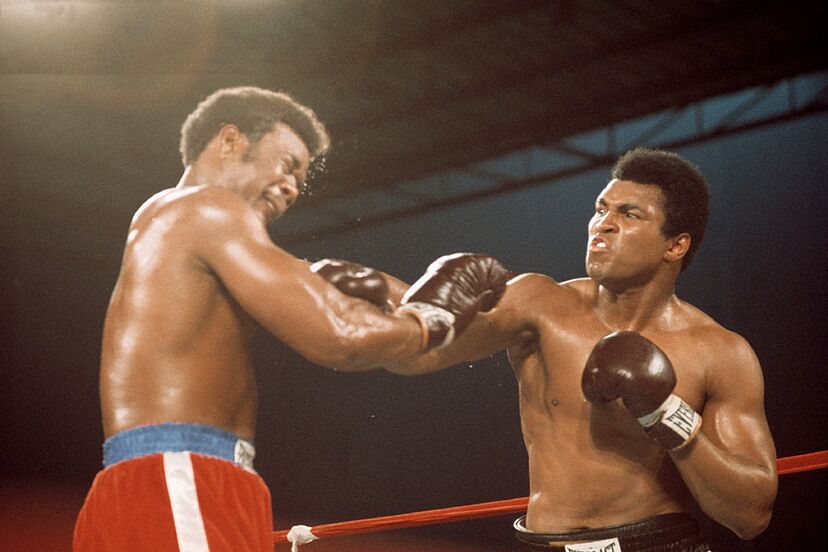amicitaacademy.com – On October 30, 1974, in Kinshasa, Zaire (now the Democratic Republic of Congo), the world witnessed one of the most iconic and legendary moments in sports history: the “Rumble in the Jungle.” This heavyweight boxing match between Muhammad Ali and George Foreman transcended the sport, leaving an indelible mark on the world. Here’s why this historic bout continues to be celebrated to this day.
The Build-Up: Clash of Titans
At the time, George Foreman was the reigning heavyweight champion and a formidable force in the boxing world. With a record of 40-0 and 37 knockouts, Foreman’s raw power had dismantled legendary fighters like Joe Frazier and Ken Norton with apparent ease. He was considered unbeatable.
Muhammad Ali, on the other hand, was a former champion seeking to reclaim his title. Known for his quick wit, dazzling footwork, and resilience, Ali faced skepticism from critics and fans alike. Many doubted his ability to withstand Foreman’s devastating punches. Yet, Ali’s confidence never wavered. He famously declared, “I’m going to dance, I’m going to float like a butterfly and sting like a bee.”
The Fight: The “Rope-a-Dope”
In front of 60,000 spectators in Kinshasa, the fight began. From the first round, it was clear that Ali had a unique strategy. Instead of engaging Foreman in the center of the ring, Ali leaned back against the ropes, covering up and absorbing punches. This tactic, later known as the “rope-a-dope,” was designed to tire Foreman out.
Round after round, Foreman unleashed his powerful punches, but Ali’s defensive brilliance minimized the damage. While absorbing the onslaught, Ali taunted Foreman, saying, “Is that all you got, George?” The psychological warfare frustrated the champion and began to sap his energy.
The Turning Point
By the eighth round, Foreman was visibly fatigued. Sensing the moment, Ali sprang into action. With lightning speed and precision, he unleashed a flurry of punches that culminated in a devastating combination. Foreman staggered and fell to the canvas. The referee counted him out, and Ali was once again the heavyweight champion of the world.
The Aftermath: A Legacy Cemented
Ali’s victory was more than just a triumph in the ring; it was a cultural and political statement. The fight symbolized resilience, intelligence, and the power of self-belief. Ali had defied the odds, silenced his critics, and reaffirmed his status as “The Greatest.”
The “Rumble in the Jungle” also highlighted Ali’s connection with people worldwide. His charisma and advocacy for civil rights had made him a global icon, and his victory in Zaire solidified his place in the hearts of millions.
Why It’s Legendary
This bout is legendary not only because of the skill and strategy displayed but also because of the story it told. It was a battle of brains versus brawn, of determination over intimidation, and of a man who refused to let the world dictate his destiny.
Conclusion
The Muhammad Ali vs. George Foreman fight remains a defining moment in sports history. It showcased the brilliance of Ali’s mind and spirit, proving that greatness is not just about physical strength but also about strategy, heart, and belief. Decades later, the “Rumble in the Jungle” continues to inspire athletes and fans around the globe, serving as a reminder that the impossible can be achieved with courage and determination.

